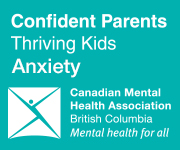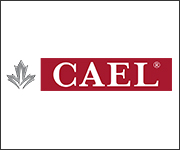
| Archive | Printer Friendly | Send to a Friend | BC Counsellor |
|
Counselling Corner
At various times of year (such as just before spring break when this post is being written), there are definite trends toward exhaustion among staff and students. For those of us who might work with students in small groups, it can sometimes be a challenge to even think about what to bring up next as a topic of conversation. The "What You Say and Do Matters" tool at wordwall.net can help sidestep some of the pressure of coming up with prompts by providing a series of thought-provoking questions in three different ways: as a wheel, as cards, and as boxes to be opened. This tool could easily be used by the students in a group or by an adult (or other) facilitator. The Learning Curve
Join ReTooling for Climate Change as they host a webinar on the highly relevant issue of "Mental Health & Our Changing Climate: Impacts, Implications and Practices" on March 12, 2021 (11 a.m. - 12:30 p.m. PST). Join Fraser Basin Council & SHIFT Collaborative and three exciting panelists from The University of British Columbia, Project InsideOut, and North Shore Emergency Management for this event. Speakers include Dr. Renee Lertzman, Judy Wu, and Emily Dicken. To register: https://lnkd.in/gynqGZA In the upcoming issue of BC Counsellor, we include the Environmental Educators Provincial Specialists Association's (EEPSA) position statement on increasing the frequency with which students are taken outside to learn and the ubiquity as outdoor spaces as class "room" alternatives. The outdoors have myriad positive effects on our mental health and overall well-being and we as counsellors are well-positioned to help increase students' awareness of this relatively simple step to help enhance well-being. Looking for ideas to help bring students outside yourself or encourage others to do so? We are fortunate to have access to many excellent resources here in BC; a great place to start is the EEPSA website.
Members Only
The BC School Counsellors' Association is starting work on a means of offering intervision (a means of connecting that is related to peer clinical supervision) to its members. According to the United Nations Office on Drugs and Crime's 2010 publication, Intervision Guidelines, this approach is one that can help support helping professionals in working through the emotion that naturally arises in the kind of work that we do through a peer- (rather than supervisor-) mediated model. "Intervision is one of the formats that can be used to discuss treatment and care work in a team besides supervision, team meetings and case discussions. Team meetings generally cover two themes, i.e. management issues (organising/creating conditions for the work of the team) and facilitating the treatment and care work with clients. Case discussions are focussing on an individual treatment case including the staff involved in this case, e.g. to reach agreement on the treatment plan or to evaluate progress in this individual plan. Intervision and supervision are forms of work related learning, aiming at improving the (quality of) work of professionals. Supervision and intervision have a number of shared/common characteristics. Both focus on learning, on development of staff. They aim at increasing knowledge, improving skills, increasing self-reflection and insight in personal functioning and on learning how to deal with emotions related to work situations" (p. 5). Interested in learning more about this new initiative and how you might get involved? Read the attached Guidelines and watch this space!
BC Counsellor Magazine
In the upcoming issue of BC Counsellor, we will hear from one BC counsellor about how she incorporates an important part of her identity into her work with clients, deepening their relationship as a result. Being simultaneously open and psychologically safe with others can be a challenge. As counsellors, we need to be skilled at maintaining boundaries while encouraging vulnerability with our clients, but how might this balance of vulnerability and boundaries play out in our larger work contexts? How open should we be with our coworkers about what is going on for us? With BC working toward adopting compassionate systems leadership as a system-wide focus, it will become more and more common for our workplaces to encourage all of us to be vulnerable and authentic; however, just like supporting vulnerability in the counselling setting can be a delicate procedure, so too can opening up at work feel precarious. While being authentic with each other is important to building strong teams, it can be difficult to know how to do so in appropriate ways. The key, according to Brené Brown, is establishing boundaries. On a special episode of the TED podcast WorkLife, Brené and organizational psychologist Adam Grant talk about what vulnerability in the workplace really means. |
||||||||||||





